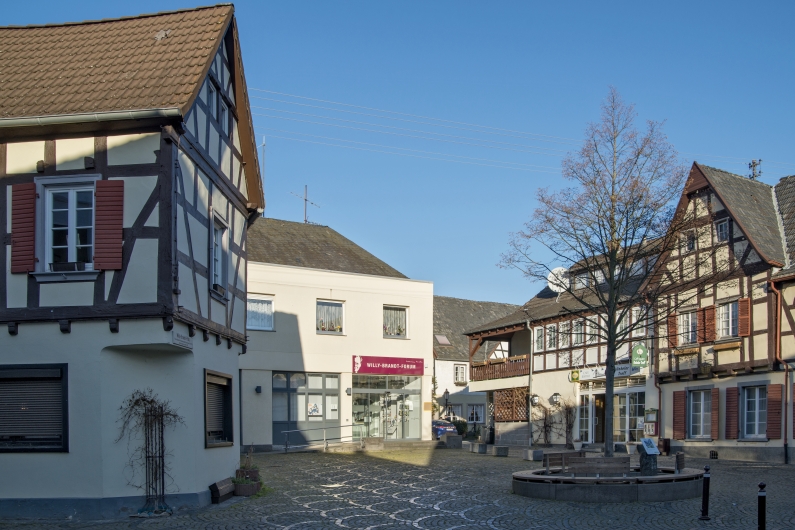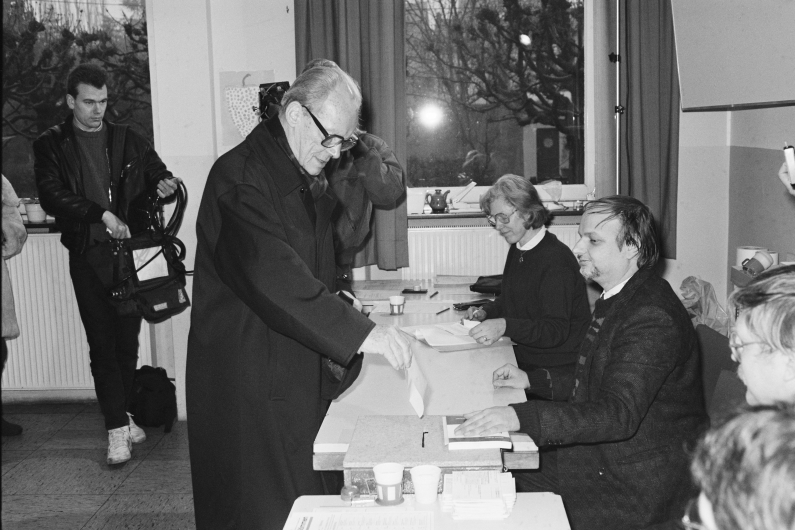Though officially retired, Brandt did not act like a pensioner. He was a member of the European Parliament until 1983, SPD party leader until 1987, and president of Socialist International until 1992. His presence was also felt at events relating to public policy: at the Federal Press Conference, where in 1983 he presented the so called Brandt Report on international development issues; in East Berlin during talks with Erich Honecker; and at the Kremlin during talks with Mikhail Gorbachev.
In 1990 during the second Gulf War and shortly before Brandt turned 77, he spent three days in Baghdad trying to persuade Saddam Hussein to release nearly 200 foreign hostages. On 20 June 1991, when the Bundestag voted on whether to transfer the German capital from Bonn to Berlin, Brandt, who was a Bundestag member at the time, spoke in favour of the move. Brandt, who was awarded the 1971 Nobel Peace Price for his policy of East-West détente, also found time to write his memoirs.
There was never a dull moment in the life of Willy Brandt, and wherever he went, he was in the spotlight. He and his new partner, Brigitte Seebacher, only had time for themselves in Unkel (pop. 4,000), a small town on the right bank of the Rhine. During his final illness, many of his friends and associates came to Unkel to exchange a few final words with him. Mikhail Gorbachev, who showed up one day unannounced, was mistaken for a journalist in disguise and was sent packing.
Even former Chancellor Helmut Kohl paid Brandt a visit in his home on the Rhine during this final chapter of his life. The two men spoke about death, Brandt’s life and his wish for a “Chancellor’s funeral.” A wish that, following his passing on 8 October 1992, was granted – in Berlin, where his career began.

